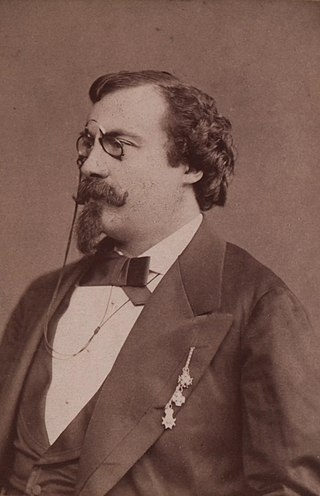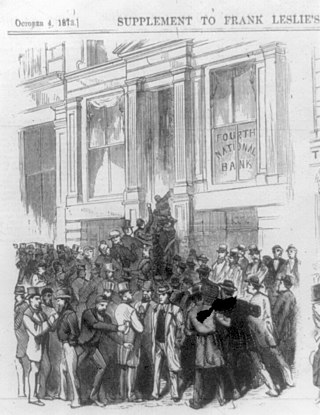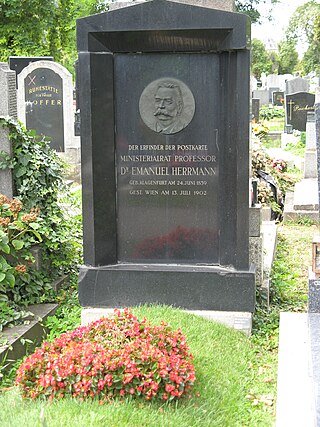Related Research Articles

The dot-com bubble was a stock market bubble in the late 1990s. The period coincided with massive growth in Internet adoption, a proliferation of available venture capital, and the rapid growth of valuations in new dot-com startups.

Julius Johannes Ludovicus Ritter von Payer, ennobled Ritter von Payer in 1876, was an officer of the Austro-Hungarian Army, mountaineer, arctic explorer, cartographer, painter, and professor at the Theresian Military Academy. He is chiefly known for the Austro-Hungarian North Pole expedition in 1872–74 and the discovery of Franz Josef Land.

The Austro-Hungarian North Pole expedition was an Arctic expedition to find the North-East Passage that ran from 1872 to 1874 under the leadership of Julius Payer and Karl Weyprecht. The expedition discovered and partially explored Franz Josef Land.

Maximilian Steiner was an Austrian actor and theater director and manager. He is known particularly for his leadership of Vienna's Theater an der Wien from 1869 to 1880, a period during which the theater reduced the importance of folk plays and was prominent in developing and promoting the fashion of a Viennese style of operetta.

The Panic of 1873 was a financial crisis that triggered an economic depression in Europe and North America that lasted from 1873 to 1877 or 1879 in France and in Britain. In Britain, the Panic started two decades of stagnation known as the "Long Depression" that weakened the country's economic leadership. In the United States, the Panic was known as the "Great Depression" until the events of 1929 and the early 1930s set a new standard.

Ludwig Anzengruber was an Austrian dramatist, novelist and poet. He was born and died in Vienna, Austria.
The Long Depression was a worldwide price and economic recession, beginning in 1873 and running either through March 1879, or 1896, depending on the metrics used. It was most severe in Europe and the United States, which had been experiencing strong economic growth fueled by the Second Industrial Revolution in the decade following the American Civil War. The episode was labeled the "Great Depression" at the time, and it held that designation until the Great Depression of the 1930s. Though a period of general deflation and a general contraction, it did not have the severe economic retrogression of the Great Depression.

Deutsche Vermögensberatung (DVAG), which loosely translates into English as "German wealth advisors", is a company based in Frankfurt, Germany. The DVAG is active in Germany, Austria and Switzerland. Founded in 1975 by Reinfried Pohl, the company is managed by Deutsche Vermögensberatung Holding and is Germany’s largest stand-alone financial services distributor.

From the 17th century through to the 19th century, the Habsburg monarchy, Austrian Empire, and the Austro-Hungarian Empire made a few small short-lived attempts to expand overseas colonial trade through the acquisition of factories. In 1519–1556 Austria's ruler also separately ruled Spain, which did have a large colonial empire. However no other Austrians were involved when Emperor Charles V held the crown of both the Spanish Empire and the Holy Roman Empire and the Spanish colonies were not linked to Austria.
SuperOffice is a European supplier of business-to-business customer relationship management (CRM) software. SuperOffice was founded in 1989 by Une Amundsen. He renamed the company "Superland" and refers to himself as "The King of Superland".

The Höchstetter family, from Höchstädt in western Bavaria near the banks of the Danube, were members of the fifteenth and sixteenth-century mercantile patriciate of Augsburg.

Alexander Christian Leopold Conze was a German archaeologist, who specialized in ancient Greek art.

Emanuel Alexander Herrmann was an Austrian national economist. He is considered the decisive last in an international line of inventors of the postal card.

Erste Group Bank AG is an Austrian financial service provider in Central and Eastern Europe serving 15.7 million clients in over 2,700 branches in seven countries.

Social trading is a form of investing that allows investors to observe the trading behavior of their peers and expert traders. The primary objective is to follow their investment strategies using copy trading or mirror trading. Social trading requires little or no knowledge about financial markets.

Comdirect Bank Aktiengesellschaft was the third-largest German direct bank and was based in Quickborn, Schleswig-Holstein. Founded by the Commerzbank in 1994, the company went public in 2000. The Commerzbank integrated the company on November 1, 2020.

Adelheid Luise "Adele" Spitzeder, also known by her stage name Adele Vio, was a German actress, folk singer, and con artist. Initially a promising young actress, Spitzeder became a well-known private banker in 19th-century Munich when her theatrical success dwindled. Running what was possibly the first recorded Ponzi scheme, she offered large returns on investments by continually using the money of new investors to pay back the previous ones. At the height of her success, contemporary sources considered her the wealthiest woman in Bavaria.

The Anglo-Österreichische Bank, in shorthand Anglobank, was a bank founded in Vienna in 1863 with an extensive branch network in the Habsburg Monarchy and later in its successor states, primarily Austria and Czechoslovakia.

TeamViewer SE is an international technology company headquartered in Göppingen, Germany. The company became known for the TeamViewer remote access and support software of the same name. Today, TeamViewer offers its customers a global platform for connecting, monitoring, and controlling computers, machines, and other devices. TeamViewer's software is used in companies of all sizes and from all industries, for example, to digitalize processes along the industrial value chain. The company is listed on the stock exchange and is a member of MDAX and TecDAX.
References
- Davies, Hannah Catherine (20 November 2018). Transatlantic Speculations: Globalization and the Panics of 1873. Columbia University Press. ISBN 978-0-231-54621-8.